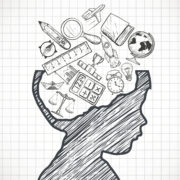
Living with Attention Deficit Hyperactivity Disorder (ADHD) is challenging, but when it co-occurs with anxiety, the difficulties can multiply. Understanding how these two disorders interact and learning effective coping strategies can significantly enhance the quality of life for those affected. This article explores the causes, symptoms, and treatments for ADHD, and provides insights into managing the intersection of ADHD and anxiety.
Understanding ADHD: Causes, Symptoms, and Treatment
ADHD is a neurodevelopmental condition that is usually identified in children, while it can also cause symptoms in adults. Although the precise etiology of ADHD is unknown, a confluence of neurological, environmental, and genetic variables is thought to be responsible.
Causes of ADHD: Genetics is a major contributing factor to ADHD. Research has indicated that the disorder appears to have a hereditary component as it tends to occur in families. ADHD may also arise as a result of environmental factors, such as early lead exposure and pregnancy-related exposure to drugs, alcohol, or tobacco smoke. Furthermore, people with ADHD frequently exhibit abnormalities in the structure and function of their brains, particularly in the regions related to attention and executive function.
ADHD Symptoms: Inattentiveness and hyperactivity-impulsivity are the two primary types of ADHD Symptoms. Symptoms of inattention include trouble maintaining focus, a propensity for thoughtless errors, and issues with organizing. Symptoms of hyperactivity-impulsivity include an inability to sit still, frequent fidgeting, and a propensity to interrupt people. Significant deficits in academic, vocational, and social functioning may result from these symptoms.
Treatment for ADHD: Behavioral therapies and medicines are usually used in combination to effectively manage ADHD. The goal of behavioral therapies, such cognitive-behavioral therapy (CBT), is to help patients control their symptoms and perform better. Programs for parent education and psychoeducation are also helpful, especially for kids with ADHD.
Medication for ADHD: Medication can be quite effective in lowering the main symptoms of ADHD. Methylphenidate and amphetamines are examples of stimulant drugs that are frequently administered and have been demonstrated to be quite successful. There are also non-stimulant drugs like guanfacine and atomoxetine for people who don’t react well to stimulants or who have negative side effects.
The Intersection of ADHD and Anxiety
Anxiety is a common comorbidity in individuals with ADHD. Research indicates that about 30-40% of people with ADHD also have an anxiety disorder. The presence of both disorders can complicate the clinical picture and make treatment more challenging.
Why ADHD and Anxiety Co-Occur: The high rate of co-occurrence of anxiety and ADHD is caused by multiple reasons. There are genetic and environmental risk factors common to both illnesses. Anxiety can also arise as a result of ongoing stress and frustration related to treating symptoms of ADHD. Moreover, anxiety levels may rise as a result of executive functioning deficiencies associated with ADHD, such as trouble organizing and planning, when people find it difficult to fulfill everyday obligations.
Symptoms Overlap and Differentiation: While restlessness and trouble focusing are common symptoms of both ADHD and anxiety, they can differ in other ways. Excessive concern, fear, and avoidance actions are hallmarks of anxiety. In contrast, impulsivity, hyperactivity, and inattention are more closely associated with symptoms of ADHD. To accurately diagnose and differentiate between the two diseases, a mental health expert must do a comprehensive evaluation.
Coping Strategies for Co-Occurring ADHD and Anxiety
Managing ADHD and anxiety together requires a multifaceted approach. Here are several strategies that can help:
- Integrated Treatment Plan: An integrated treatment plan that addresses both ADHD and anxiety is essential. This may involve a combination of medication, therapy, and lifestyle changes. Collaboration between healthcare providers, such as psychiatrists, psychologists, and primary care physicians, ensures a comprehensive approach to treatment.
- Medication Management: It is important to work closely with a healthcare provider to find the right medication regimen. For some individuals, a single medication may alleviate symptoms of both ADHD and anxiety. Others may require a combination of medications. Regular follow-ups are necessary to monitor effectiveness and adjust dosages as needed.
- Cognitive-Behavioral Therapy (CBT): CBT is an evidence-based therapy that is effective for both ADHD and anxiety. It focuses on changing negative thought patterns and behaviors, developing coping skills, and improving emotional regulation. CBT can help individuals with ADHD manage their symptoms and reduce anxiety by teaching practical strategies for daily challenges.
- Mindfulness and Relaxation Techniques: Deep breathing exercises and other mindfulness techniques can help lower anxiety and increase focus. These methods encourage mindfulness and relaxation, which can be especially helpful for those with ADHD who have trouble controlling their impulsivity and distractibility.
- Healthy Lifestyle Choices: Adhering to a healthy lifestyle can help reduce anxiety and ADHD symptoms. The essential elements include a healthy diet, regular exercise, enough sleep, and abstaining from alcohol and caffeine. Particularly exercise has been demonstrated to elevate mood, lessen anxiety, and improve cognitive performance.
- Time Management and Organizational Skills: For those with ADHD, learning efficient time management and organizing techniques is crucial. Anxiety can be decreased and productivity can be increased by using planners, creating routines, setting reminders, and breaking things down into smaller parts. Coaches for ADHD or professional organizers might offer further assistance in honing these abilities.
- Support Systems: Managing co-occurring ADHD and anxiety requires a robust support system. Family, friends, support networks, and mental health specialists can all fall under this category. Gaining significant insights and emotional support from others who encounter similar issues can be facilitated by sharing experiences and ideas.
Conclusion
Although having anxiety and ADHD can be quite overwhelming, both conditions can be successfully managed with the correct techniques and assistance. It is essential to comprehend the origins, signs, and therapies of attention deficit hyperactivity disorder (ADHD) as well as the interactions between ADHD and anxiety. Through the implementation of a thorough treatment plan incorporating medicine, therapy, lifestyle modifications, and support systems, patients can attain improved results and lead satisfying lives. Recall that getting help from a professional and remaining dedicated to therapy are essential to effectively managing co-occurring anxiety and ADHD.










